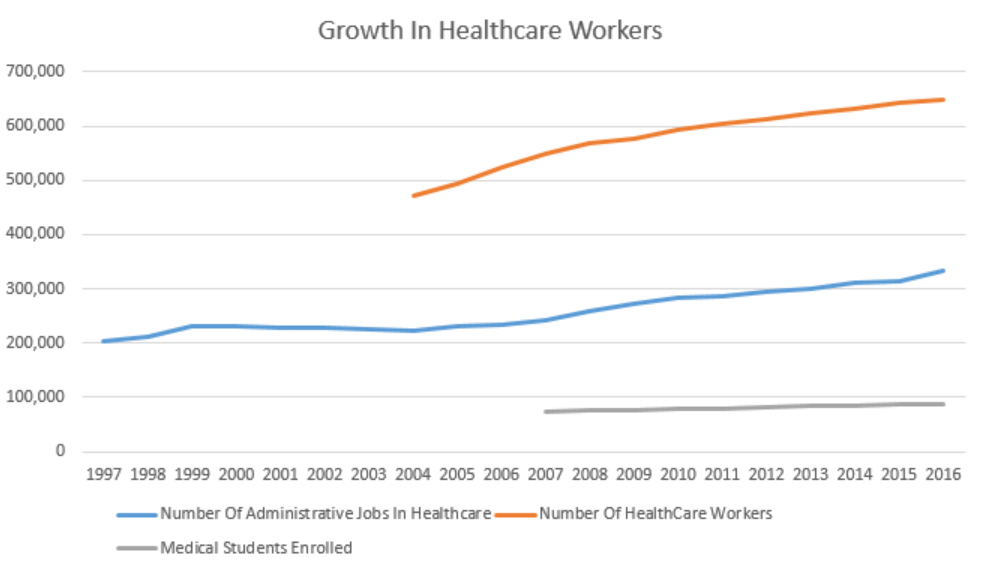
Do We Have Too Many Managers and Administrators in Healthcare?
As the global healthcare industry faces mounting challenges, there is a growing need for innovative solutions.
While automation and digitization were initially seen as remedies, they have inadvertently created more work for healthcare professionals, leading to "inbox burnout" and an increased reliance on managers and administrators.
As the problems in healthcare on a global level stack, with hospitals closing down due to a shortage of skilled personnel, we look for solutions from out of a paradigm that has been de way to go for many decades: work harder, work more efficiently, and automation.
Though I do think more efficient workflows are possible once we clear up those silos that we are working from, both in process and in data, I also think this is not going to solve the challenges we’re facing.
Next, to transition from a ‘sick-care’ system towards a health system and incorporate more of the touchpoints from our daily life like retail (hence my Healthcare meets retail-mission), there is also the elephant in the room: managers and administrators.
Let me be frank: we need these roles, and many are fine people! But let’s look at automation and digitization of healthcare. Supposedly it would solve many of the problems we face(d), while the reality is it created more workload for professionals, by now distracting professionals up to 40% from looking at their patients, and invokes a new professionals-disease: “inbox burnout.”
And what do we see happening? We see an accelerated need for more managers and administrators to help with the interpretation of guidelines for care processes, collecting more data (it’s only one minute extra to fill out that field), and next, chasing professionals to make sense of the data that is being generated.
So, in short, we might not be able to get around the challenges by looking to technology and efficiency only. We need to put the patient and professional first and empower them with technology that actually saves them time. A statement like that can easily invoke new research to measure the ‘ist’ and ‘soll’, but just ask them! Just ask professionals if a new process, technology, or procedure would actually save them time and more ‘quality time with the patient.

If not, we’re just perpetuating the vicious cycle we’re in with a different label. Since the seventies, the growth of administrators outpaced that of physicians by over 2500%; even though this is somewhat skewed as some physicians took on double roles, percentile growth is relative (from 1 to 2 is 100% growth), and automation certainly also needed more administration; the numbers are staggering.
I think that it is possible that we have too many managers and administrators in healthcare. I think that this is something that needs to be looked at in order to see if it is truly the case.
So my hunch would be, in addition to working more efficiently, to create more relevant automation and change the paradigm from sick care to health, to also discuss a hold in creating new management roles and not replacing existing ones in case of a vacancy and explore the actual impact of such a new approach. Obviously, now with meticulous research done by professionals, but maybe simply by just going on: business as usual.
Trending
-
1 Mental Health Absences Cost NHS £2 Billion Yearly
Riddhi Doshi -
2 Gut Check: A Short Guide to Digestive Health
Daniel Hall -
3 London's EuroEyes Clinic Recognised as Leader in Cataract Correction
Mihir Gadhvi -
4 4 Innovations in Lab Sample Management Enhancing Research Precision
Emily Newton -
5 The Science Behind Addiction and How Rehabs Can Help
Daniel Hall





Comments